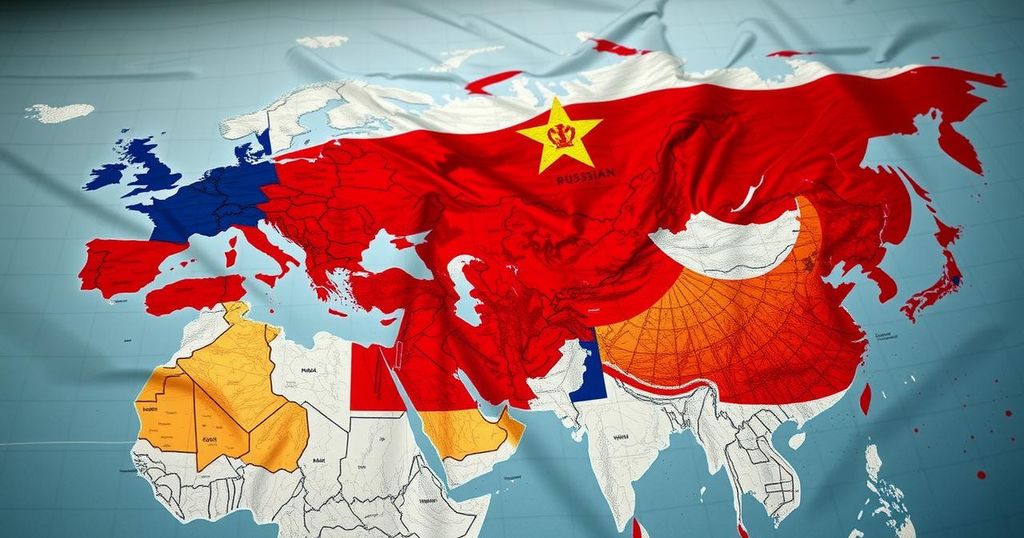Global news
AMERICA, ASIA, CSTO, DEFENCE, DEFENSE SPENDING, DONALD TRUMP, EURASIAN ECONOMIC UNION, EUROPE/ASIA, GEOPOLITICS, INTERNATIONAL RELATIONS, POLITICS NEWS, PUTIN, RUSSIA, RUSSIA-UKRAINE WAR, RUSSIAN INVASION OF UKRAINE, SIBERIA, TRUMP, US, UZBEKISTAN, VLADIMIR PUTIN, YER, YERKIN NAZARBAY
Marcus Li
0 Comments
Russia’s Strategic Shift Eastward Before Trump’s Presidency
Russia is strengthening its geopolitical and economic ties with Kazakhstan before Donald Trump’s inauguration, focusing on security cooperation and a unified regional defense strategy. Amid sanctions and ongoing conflicts, Russia seeks to establish itself as a manufacturing power by enhancing connections within Central Asia. Putin’s visit highlights the importance of collaboration with Kazakhstan to counter external threats and to facilitate sustainable economic growth in the region.
In light of the approaching inauguration of President-elect Donald Trump, Russia is pursuing an eastward geopolitical strategy to bolster its economic and security presence, particularly in Kazakhstan. This effort was exemplified by President Vladimir Putin’s official visit to Astana shortly after Trump’s election, where they discussed enhancing military cooperation and establishing a more integrated regional defense architecture. Trump’s anticipated foreign policy approach may assist Russia in revitalizing its industry and developing a sustainable economic strategy, essential amidst the ongoing sanctions imposed on the country. To solidify its position as a manufacturing power, Russia is concentrating on strengthening its economic links with Kazakhstan and Central Asia, despite facing significant challenges from Western sanctions and the ongoing conflict in Ukraine. Putin has emphasized the importance of this partnership, asserting that cooperation with Kazakhstan is not only vital for regional stability but is also critical for countering perceived threats to both nations. In this complex arena, Russia seeks to navigate geopolitical tensions while enhancing its capabilities and establishing a framework for long-term strategic integration with its neighboring regions.
The geopolitical landscape in Central Asia has been significantly influenced by Russia’s desires to maintain its influence amidst changing global dynamics, particularly as the United States prepares for a new administration under Donald Trump. Russia’s strategy involves a focus on strengthening its alliances with neighboring states, especially Kazakhstan, in light of potential shifts in international power relations. The historical context includes Russia’s challenges regarding its economic developments affected by sanctions and military engagements. The potential for a rejuvenated American presence underscores the urgency for Russia to solidify its economic and security partnerships in Eurasia.
In conclusion, as Russia positions itself amid the anticipated changes resulting from President-elect Trump’s administration, the emphasis on strengthening ties with Kazakhstan and Central Asia is paramount. The strategic framework being developed aims to ensure Russia’s geopolitical stability while addressing the challenges posed by Western sanctions and internal economic pressures. Ultimately, effective cooperation in defense, economics, and regional politics will be essential for Russia to navigate the complexities of the evolving international order and to assert its influence in Eurasia effectively.
Original Source: www.thinkchina.sg




Post Comment